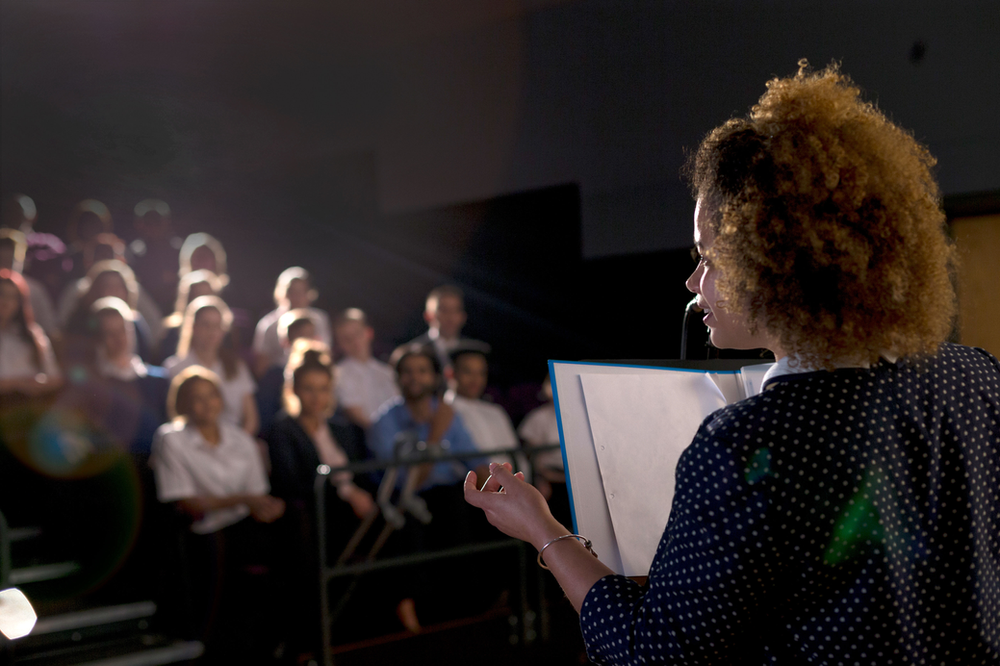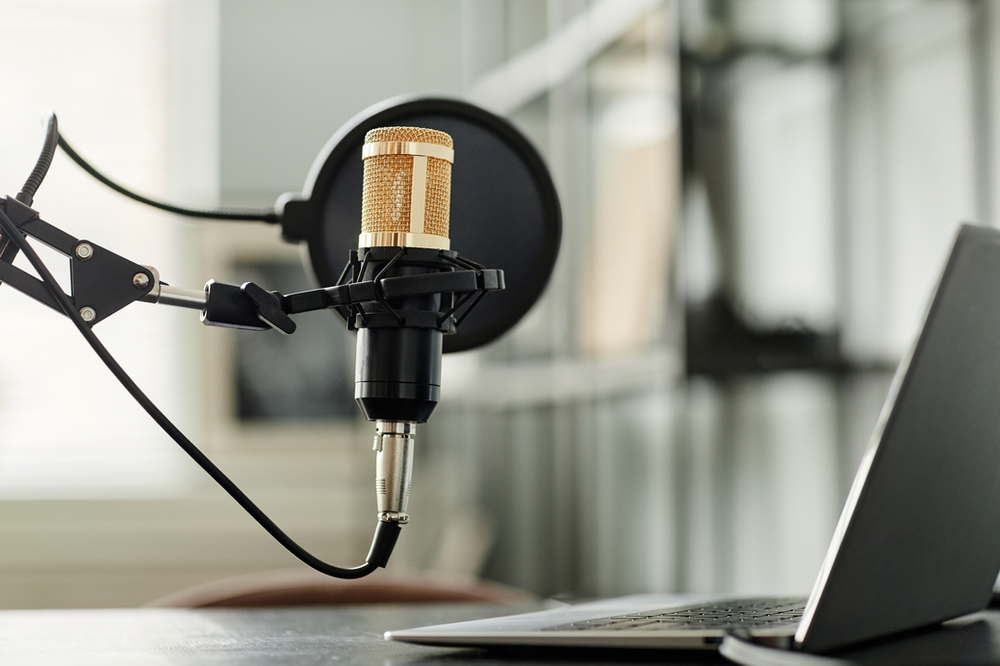Nervous About Public Speaking? Here are 7 Techniques to Help You

Have you been asked to give a talk, speech or presentation? If that’s you, I bet the thing that’s foremost in your mind isn’t the content of said engagement…
It’s the thought of standing before an audience that is the most nerve-racking!
Public speaking can be a daunting task, whether it's for a large audience or a small group. It's a skill and like any other skill, it requires practice, preparation, and a level of confidence.
As a veteran of 13 years in the acting and filmmaking industry, something I’m asked about a lot, is preparing for public speaking.
I’m certainly used to being in front of an audience or a camera (or sometimes both). Public speaking though isn’t playing a character. Or at least: not one that a writer has conceived of and written a script for.
You are you, and it is you who is trying to hold their attention. Not the material.
That’s why you feel judged.
One of the things that most attracts us to performances, be they live or pre-recorded, is the display of competence. As soon as we get a whiff of uncertainty or wavering confidence, we switch off.

Knowing this about ourselves as a member of the audience, we can project what your future audience members are going to be thinking of you while you’re up there trying to project an air of authority.
Fortunately, there are techniques that can help you prepare for public speaking and alleviate some of the anxiety associated with it. In this article, we'll explore some of these techniques, including breathing and relaxation exercises.
-
Know Your Audience: Understanding your audience is a crucial aspect of public speaking preparation. Knowing who you're speaking to allows you to tailor your message to their interests and concerns. Do some research on your audience before the speech to get an idea of what they might be interested in hearing from you. This can also help you feel more confident and prepared when you step up to the podium.
-
Practice, Practice, Practice: Practice is essential when it comes to public speaking. The more you practice, the more comfortable you'll feel speaking in front of others. Practice your speech out loud, preferably in front of a mirror or with a friend who can provide feedback. This will help you get comfortable with the material and identify any areas that need improvement.
-
Use Breathing Techniques: Breathing techniques can help you relax and calm your nerves before a speech. One popular technique is diaphragmatic breathing, which involves taking deep breaths that fill your lungs and diaphragm with air. This type of breathing can help reduce stress and anxiety, allowing you to feel more relaxed and confident. To practice diaphragmatic breathing, start by sitting or standing in a comfortable position with your back straight. Place one hand on your chest and the other hand on your stomach. Take a deep breath through your nose, filling your lungs with air and expanding your stomach. Hold the breath for a few seconds, then exhale slowly through your mouth, contracting your stomach muscles as you do. Repeat this process several times until you feel more relaxed.
-
Use Visualization Techniques : Visualization techniques can help you mentally prepare for your speech. Before your speech, take a few minutes to visualize yourself giving a successful presentation. Imagine yourself speaking with confidence and clarity, engaging your audience and receiving positive feedback. This type of visualization can help you feel more confident and prepared when it's time to give your speech.
-
Relaxation Exercises: Relaxation exercises can help you calm your nerves and reduce anxiety before a speech. One popular technique is progressive muscle relaxation, which involves tensing and then relaxing different muscle groups in your body. To practice progressive muscle relaxation, start by sitting or lying down in a comfortable position. Close your eyes and take a few deep breaths. Begin by tensing the muscles in your feet, holding the tension for a few seconds, then releasing it. Move up to your calves, thighs, abdomen, chest, arms, and face, tensing and relaxing each muscle group in turn. Repeat this process several times until you feel more relaxed.
-
Use Positive Affirmations: Positive affirmations can help you overcome negative self-talk and boost your confidence before a speech. Before your speech, repeat positive affirmations to yourself, such as "I am confident and capable" or "I am well-prepared and ready to give a great presentation." These affirmations can help you shift your mindset from one of anxiety and self-doubt to one of confidence and positivity.
-
Stay Hydrated: Staying hydrated is important for maintaining your energy and focus during a speech. Drink plenty of water before your speech, and bring a water bottle with you to sip on during breaks. Avoid caffeine and alcohol, as these can dehydrate you and exacerbate anxiety symptoms.

Public speaking can be challenging, but with the right techniques and preparation, you can feel more confident and comfortable in front of an audience.
Practice feeling those emotional states that you associate with something that you’re already confident at.
Maybe you’re awesome at delivering a pitch deck, or maybe you kill it when it comes to creating action plans for your team.
Whatever it is, concentrate on the feelings you get from delivering something awesome that you know you can do in your sleep. It’s that emotional state that we’re trying to illicit around public speaking.
You can’t have it organically, because you haven’t done it enough yet. But you can prepare your mind and nerves to feel that way and thus train them to start associating that sense of ease with speaking infant of others.
‘Break a leg’ as we say in theatre.
You got this!













